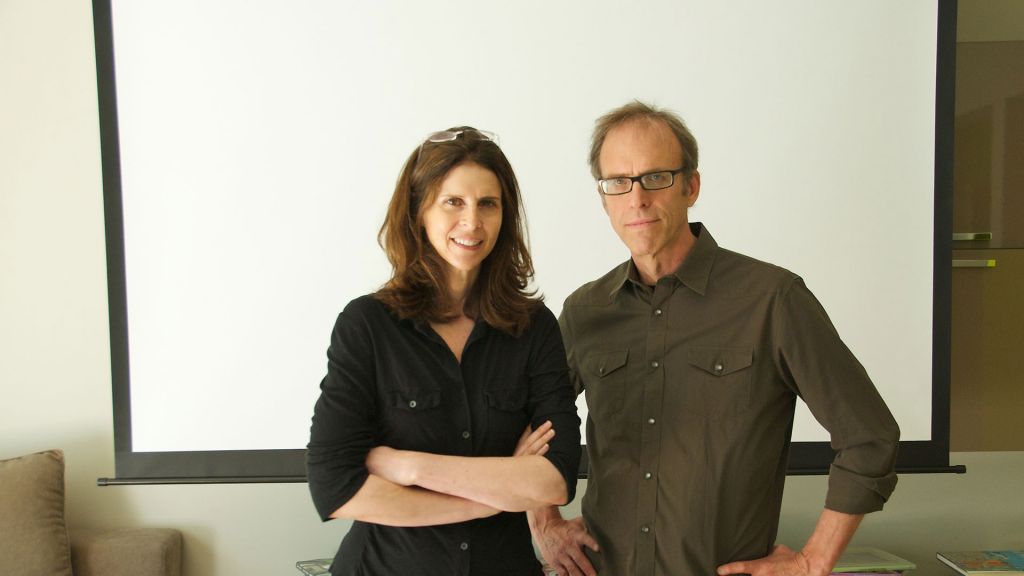The Invisible War (airing May 13 on Independent Lens) could hardly be broadcasting on a more relevant week. On Tuesday, the Pentagon released a report that showed a spike in military sexual assaults. It estimated 26,000 military members were assaulted in fiscal year 2012, up from 3,374 in 2011. This was announced two days after an air force officer in charge of sexual assault prevention was himself arrested for sexual battery. Filmmaker Kirby Dick hoped The Invisible War would gather a critical mass of attention on the epidemic of sexual assault in the military and change policy. Already, since the making of his film, former Defense Secretary Leon Panetta transferred the power to prosecute sexual assault from the level of unit commander to colonel. Still, Kirby Dick says we have a long way to go before the military justice system is truly just.
What impact do you hope this film will have?
We hope it will effect lasting changes in the way the military investigates and prosecutes sexual assault crimes and supports and cares for assault survivors.
What led you to make this film?

The Invisible War
We read an article in Salon several years ago which led us to start doing our own investigating and research. The more we delved into the issue the more shocked and horrified we were by what we were uncovering and the more committed we became to making this film and getting this story out.
What were some of the challenges you faced in making this film?
There were a number of extremely large challenges. Finding and gaining the trust of survivors was difficult, and it took a long time to secure permission to conduct a series of interviews with officials within the Pentagon. Creatively, it was difficult to figure out how to craft a film that could succinctly and clearly explicate the issue in all its nuanced complexity while also telling a compelling and powerful narrative story that would profoundly move audiences.

The Invisible War
How did you gain the trust of the subjects in your film?
Prior to meeting them, Amy [Ziering, producer] spent a lot of time on the phone with them and she’s a very compassionate, patient, and empathetic listener. This helped to initially forge a positive connection and we were very careful throughout our working with them to always make sure they felt comfortable, safe, and supported. Their mental health always took precedence over any and all of our filming imperatives or ambitions. We made that very clear and really honored this self-imposed cardinal rule and I think this also helped to create a very safe space for us to all work together in.
What would you have liked to include in your film that didn’t make the cut?
We filmed an amazing retreat that some of our subjects participated in. It was coordinated and funded by a handful of survivors who had decided to try and self-fashion some type of therapeutic event. It was very moving to see this group of women who didn’t know each other beforehand come together to attempt to heal themselves and one another without really the means, resources, or assistance of trained professionals. We also did extensive filming of two survivors out in Colorado who were undergoing equine therapy thanks to the charitable efforts of a Vietnam veteran who just offered this program for free to fellow veterans.
Tell us about a scene in the film that especially moved or resonated with you.
It’s really hard to choose — I was extremely moved by all the survivors testimonies of course, and greatly effected by the interviews we did with Jerry Sewell (Hannah’s dad) and Ben Klay (Ariana’s husband). Those were exceptionally intense and memorable events for all of us.
What has the audience response been so far? Have the people featured in the film seen it, and if so, what did they think?
Audience response has been tremendous. We won the Audience Award at Sundance and Best Doc at Seattle — and repeatedly receive standing ovations. People afterwards are outraged and moved and compelled to want to take action and help. It’s been very gratifying and inspiring. Most of the people in the film have seen it — and they have been very, very pleased — they all have said the experience of participating in the film has significantly changed their lives for the better — it’s been surprising therapeutic and empowering — they no longer feel invisible and discarded and ashamed. They feel validated and it’s renewed their faith and trust in others.
The independent film business is a difficult one. What keeps you motivated?
That’s a good question. Anger, fear, depression — and it’s too late for med school.
Why did you choose to present your film on public television?
We’re big supporters of public television — it’s so important for our society to have a means to share a common discourse that is not corporate sponsored or produced. It’s essential for the health and sanity of our ever shrinking democracy. Additionally, given that the military is the army of the people, it seems only apt that our film airs on public television.
What are your three favorite films?
The Emperor’s Naked Army Marches On; In a Year of 13 Moons; The Memory Thief.
What advice do you have for aspiring filmmakers?
Get up early.
The Invisible War premieres Monday, May 13, 2013 at 10pm (check local listings).
